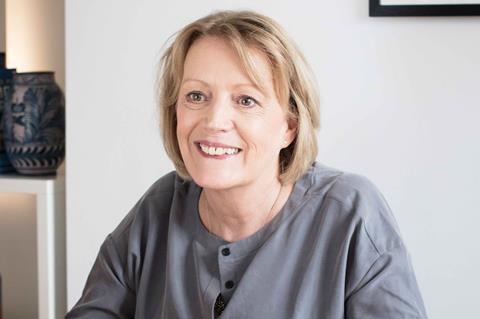A social and workplace culture that has historically encouraged modesty can also prevent us from getting noticed, writes Louise Rodgers

“How do I raise awareness of my achievements, both internally and externally, without being seen as a ‘show-off’?”
This is something that often crops up during coaching conversations, mostly because someone has been told this is something they should do, and they find the idea difficult.
Perhaps it is expected of someone as part of a promotion, or as a contribution to a new business initiative. Or a practice has been involved in the delivery of a major project and, understandably, wants those involved to help them to spread the word externally.
There are many possible reasons for wanting, or needing, to have a higher profile, and being more public about achievements has benefits, both for the individual and for the employer.
There are also many ways to go about it; from writing LinkedIn posts, to making internal or external presentations, and networking at industry events. But because I am in the business of coaching, not training, it is not my job to tutor clients on any of these, but rather to help them understand where any reluctance to just getting on with it may be coming from, and how they can feel more comfortable about doing it.
Some of this is definitely cultural. Our culture expects people to be modest, and people who aren’t modest run the risk of being accused of ‘bragging’ or ‘showing off’. Think of the small child who builds the tallest tower of lego bricks and stands up to shout about it. Certainly, when I was growing up, I was just as likely to be told to “stop showing off” as I was to be praised for my efforts. Showing off was a vice to be discouraged.
Thankfully praise comes more easily to parents than it used to, but I think that those of us who grew up in the 70s or the 80s will remember how mortifying it was to be labelled a show-off; how it took the joy out of whatever small achievement it was that we wanted to share.
Such put-downs have a habit of hanging around. A client recently asked me how he could increase his internal visibility, as an in-house sustainability consultant, without “constantly telling people what I have been up to, and what I know”. Another wanted some support to put himself in the way of a promotion by highlighting his achievements, without “losing my humility”.
Some people will always find it hard to speak up
Almost no one likes a show-off but almost everyone likes to show off, at least a little. Indeed, our feelings of self-esteem and self-confidence rely on being able to take pride in our achievements, and giving ourselves a mental pat on the back does not quite do the job. The trick to doing it in a more public way is not to be seen to be doing it at all. There are various ways to achieve this.
The first is not to brag about something that you can’t evidence. If you tell me how critical your role was in a project that had a positive outcome, I have to rely on what you tell me. But if the project has achieved wider recognition and your role in it was significant, you have won some bragging rights. Better still, let someone else do the bragging for you and enjoy the reflected glory of this.
The second is to highlight the efforts of a team of which you were a pivotal part. Giving public credit to the people who share your success is a good way to gain credibility and credit at the same time, but don’t overdo it (think Oscar Award ceremonies).
It is also possible to draw attention to something you have done by stressing the contribution it has made to a debate or shared knowledge base. Say, for example, you make a presentation to a group of colleagues or peers about something you are an expert in, highlighting in a LinkedIn post or on the office slack channel some of the key discussion points to emerge and their wider benefits, at the same time as raising your personal profile.
Some people will always find it hard to speak up and for them even these ‘soft’ self-promotional activities will be too difficult. In a coaching conversation I may encourage them to get into the habit of acknowledging their own successes, to see if this lessens the discomfort of being more public about them.
One way to do this is to spend a few minutes at the end of each day reflecting on things that went well during that day, and your role in making them go well. Even something as humble as approaching a difficult or challenging conversation with a different mindset, can be noteworthy. Noting such small successes even to ourselves can help to build the self-confidence necessary to eventually give yourself permission to build that tower of lego bricks and boast about it.
Postscript
Louise Rodgers is Building Design’s professional coach. A personal and business coach, she co-created and co-delivers Step Up, a leadership development programme for built environment consultants.
Do you have a question for Louise? If so email louise@eidyia.co.uk. She will use the most interesting in her columns but cannot enter into individual correspondence.
















No comments yet